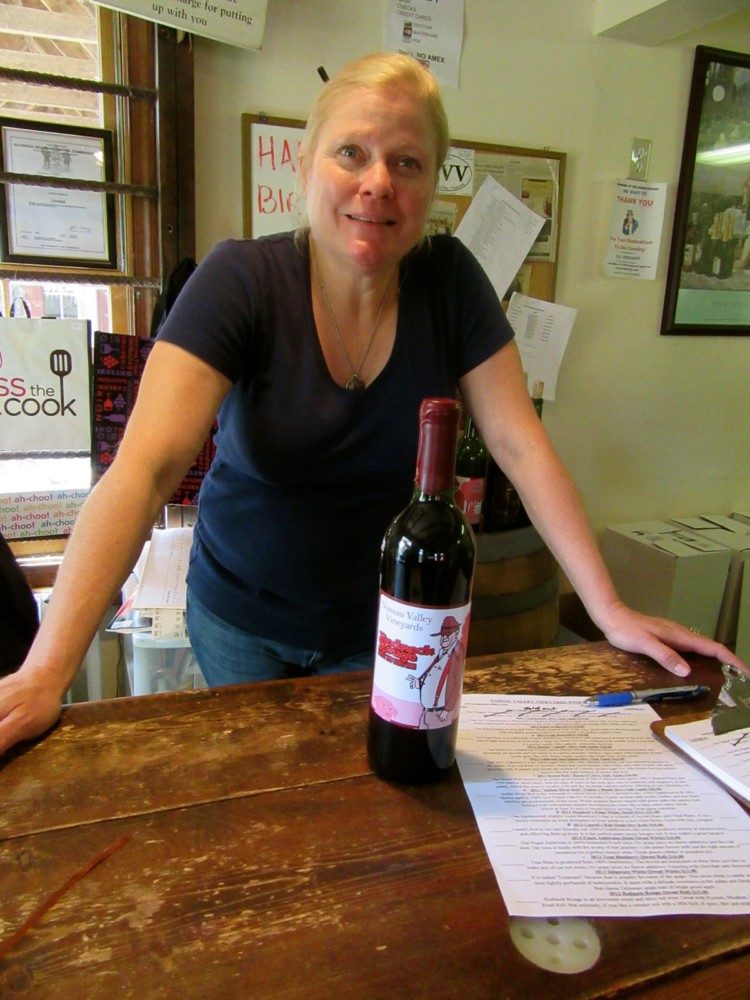By Jim Lee
Dover Post, Del.
WWR Article Summary (tl;dr) Meet the Delaware woman who didn’t “WHINE” when people said her idea to produce wine was a long shot. Persistence and Perseverance have paid off for this entrepreneur who is determined to GROW her business.
Dover Post, Del.
Tell Peg Raley that something can’t be done and she’ll likely prove you wrong.
Raley faced the same obstacles as countless entrepreneurs before her when she decided to start a business, but she also faced a unique hurdle that many people saw as insurmountable.
“Most people don’t have to change the law in order to exist,” she said.
Raley’s plan was to open the first winery in Delaware, but state law at the time did not allow for the manufacture and sale of wine. Getting that changed, many people told her, would be impossible. That made Raley more determined than ever.
“Don’t say it can’t be done if you haven’t tried,” she said. “When they told me it couldn’t be done, that prompted me to go, ‘watch me.'”
Raley knew grapes would do well in Delaware’s soil. And she knew something about wine because she wrote for Les Amis du Vin International and The Friends of Wine magazine. She also knew agriculture from her younger days on her father’s farm, a place where originally she could not wait to get away from.
“I ran screaming from it because I wanted nothing to do with farming,” she said.
But on a visit home her father took her outside to show her a few rows of grapes that he had planted. He told her they should start a winery.
“I thought he was nuts,” she said. “But the more I thought about it, the concept was sound.”
Delaware soil drains well, a requirement for healthy plants. And the climate was conducive to growing grapes. Plus, the wine trades in neighboring states were beginning to grow.
“I got tired writing about other people’s wines and decided to make my own,” she said.
But before she and her father could have any hope of running a successful winery, she first had to get the law changed.
She worked with the state office of Alcoholic Beverage Control Commission to write a bill that they would support, and she talked with senators and representatives across the state.
“I went out and sat with every single legislator personally,” she said. “All 63 of them.”
The world of political wheeling and dealing proved an eye-opener for her. Opponents lined up against her bill. Wholesalers tried to kill the bill. Compromises were hashed out in the hallways of Legislative Hall, as they are with all pieces of legislation.
“It was a rude awakening,” Raley said. “It was heart-breaking to realize what [the political process] was. It was a good lesson in reality in how the system works.”
But there was a bright side too, in the House and Senate members — both Democrat and Republican — who were trying to help her, and even some paid lobbyists who offered advice and support.
“People on both sides worked together,” she said. “That was the heartening part.”
In 1991 that thing that people had told her couldn’t be done was done. The state had a law that authorized the ABC to issue farm winery licenses. Two years later, in October 1993, Nassau Valley Vineyards opened as the state’s first winery.
Between the start of the business in 1987 and the opening of the winery in 1993, a lot of other work needed to be accomplished. Grapes were planted. They actually harvested their first crop in 1991.
They took that first harvest to Chaddsford Winery in the Brandywine Valley in Chadds Ford Township, Pa., where their first wine was made.
“They held it,” Raley said, until they got their license and got their winery operational.
On the grounds, buildings that once housed a landscaping business were converted into the winery.
“Building this was fun,” she said. “We believe in making old things useful.”
When the City of Rehoboth was replacing a portion of the boardwalk damaged in a storm, they said anyone who came and got the planks could have them for free.
Now, visitors taking the self-guided tour at the winery can walk on Rehoboth’s boardwalk.
While Raley’s efforts paved the way for other wineries in the state — and officials even recognized the industry last year when they passed a resolution making February Delaware Wine Month — her work is not done.
A bill to allow wineries to sell at farmers markets passed the House this year, but failed in the Senate.
“The retailers don’t think it’s fair that we can sell at farmers markets,” she said. “We did an end-run around it and started our own farmers market.”
And she wants to get a direct shipping bill passed, something that distributors are against.
Challenging, sure, but don’t tell her it can’t be done.














































































































































































































































































































































































